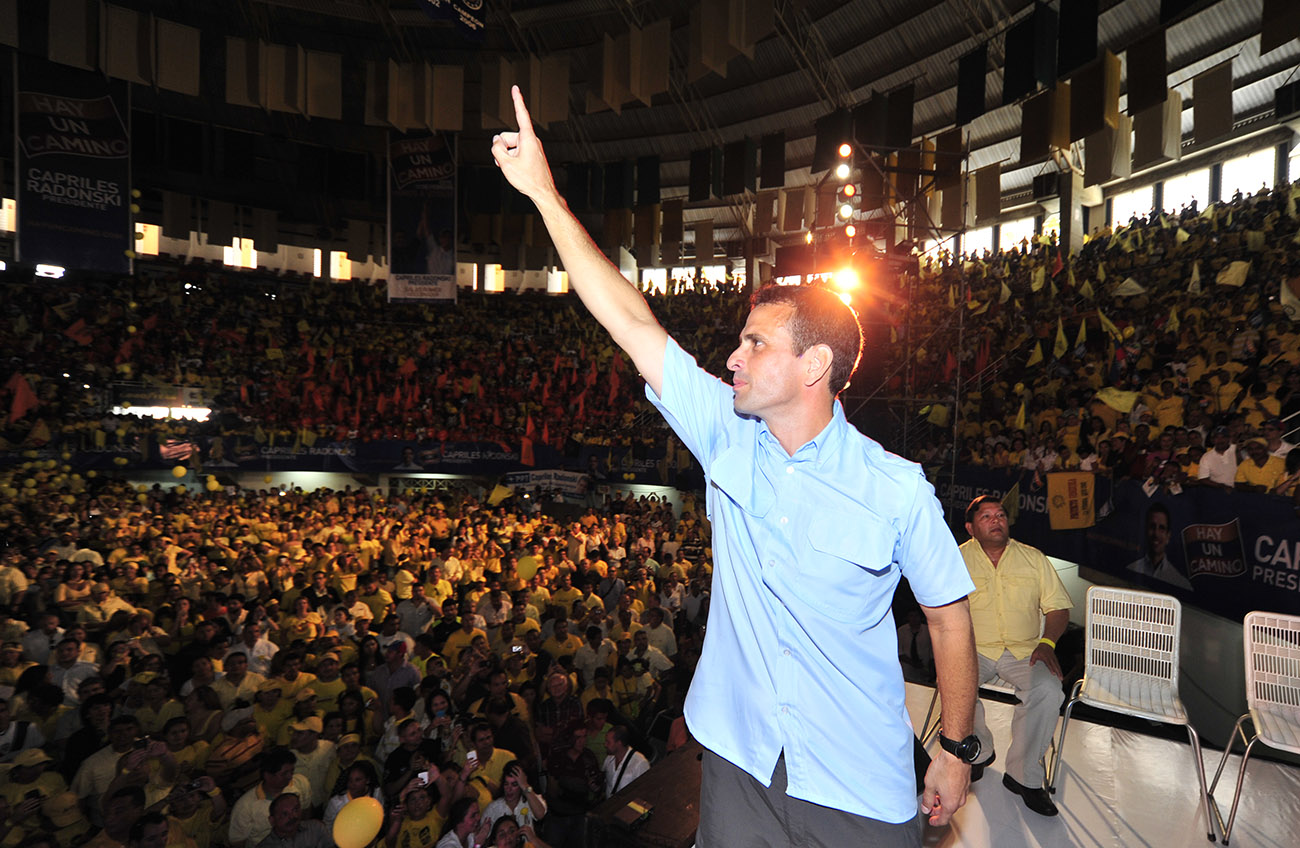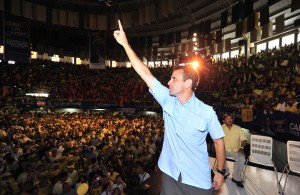Can a 39-year-old newcomer to the Venezuelan political scene usher an end to 13 years of Chavismo?
Meet Henrique Capriles, the governor of the coastal state of Miranda in Venezuela, who won the opposition’s primary on Sunday with overwhelming support for the chance to face off against Venezuelan president Hugo Chávez. ![]()
His backing was overwhelming both in his share of the vote — at 64%, more than double his nearest rival, the more leftist Pablo Pérez, the governor of Zulia state — and in the total number of votes. With 3 million ballots cast, over 15% of Venezuela’s registered voters participated, exceeding the wildest dreams of the Mesa de la Unidad Democrática (MUD), the umbrella opposition group united against Chávez.
After a 2006 presidential election widely seen as a lost opportunity by Chávez opponents, who coalesced under the banner of then-governor of Zulia state Manuel Rosales, the opposition from both left and right has united in 2012 to form MUD, a move reminiscent of the Concertación coalition in Chile that ended 17 years of the right-wing authoritarian government of Augusto Pinochet.
Hailing himself not as a savior, but as a public servant, Capriles is trying to capitalize on the momentum to draw a sharp contrast with Chávez, the ailing president (recently treated for cancer) who has been a populist and socialist, if sometimes authoritarian, champion of the poorest Venezuelans.
Despite improvements for the poorest Venezuelans and a decline in the poverty rate amid steady growth in the oil-rich nation since Chávez took power in 1999, Venezuela has become increasingly dependent on oil wealth, ever more sectors of industry have been nationalized, price controls for food and corresponding inflation have become commonplace scourges. Violent crime is among the worst in Latin America, such that Caracas has the most murders per capita of any major city in the world. Respect for constitutional values, including free media and human rights, has also diminished as corruption has increased. Chávez will bring to bear to the race an apparatus that blurs the line between his Partido Socialista Unido de Venezuela (PSUV) and a government that controls much of the media and key industries, including the petroleum industry that has financed much of the Chavismo largesse at home and across Latin America.
More worrying was today’s attempt by the country’s Supreme Court of Justice to cause the MUD to turn over its voting rolls, which would provide details to the Chavista camp on each of the 3 million voters who participated in the opposition primary — particularly troubling for a regime that’s known for harassing political opponents and stifling dissent. So far, the MUD has refused, setting the stage for a fabricated constitutional showdown distracting from the message of the Capriles campaign.
And the presidential election is not even until October.
Color me skeptical.


ArletteT fotbollskläder barn HaleyMck HarveyGe billige fodboldtrøjer TerrieSe
RandiShr maglie calcio TomQtcxc BTHEduar fotballdrakter Terrence